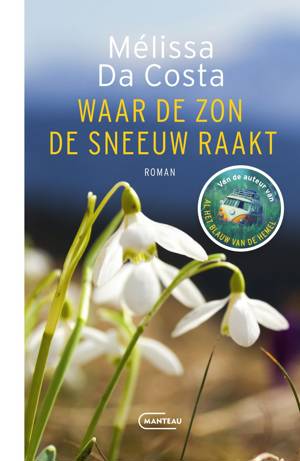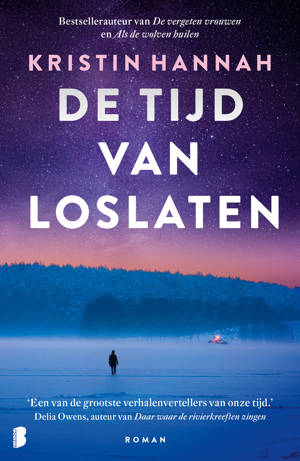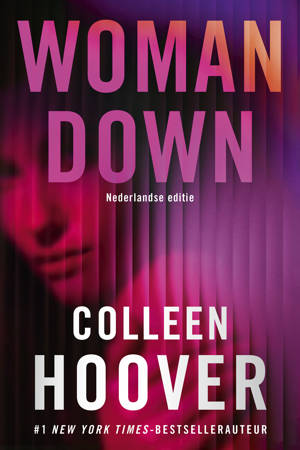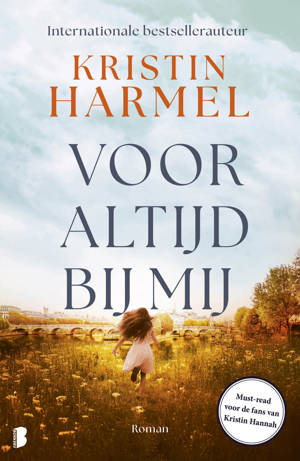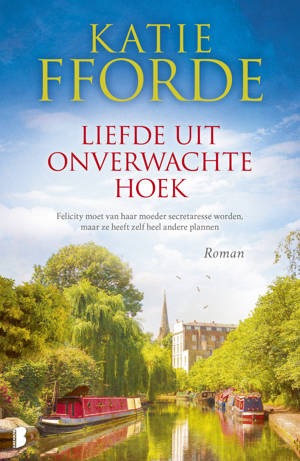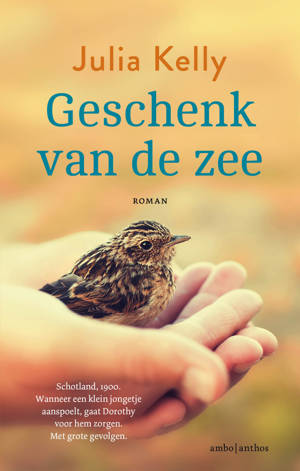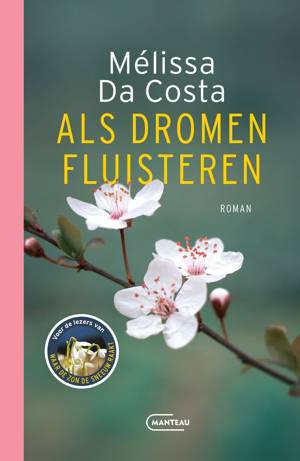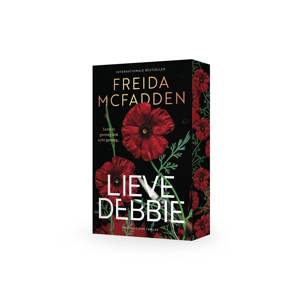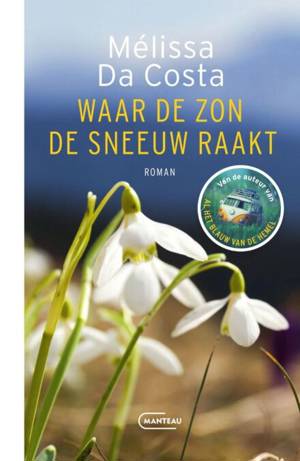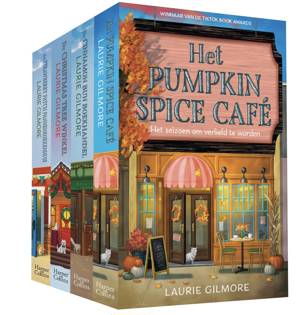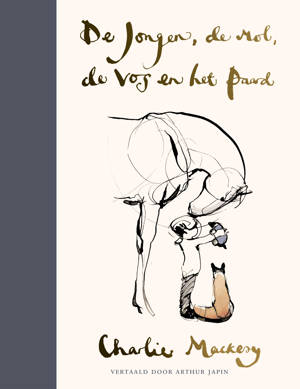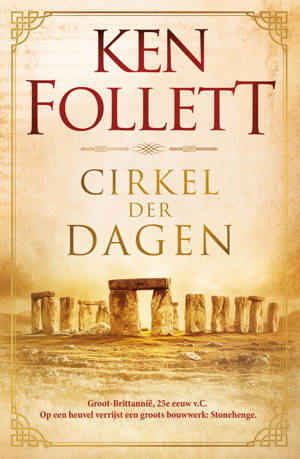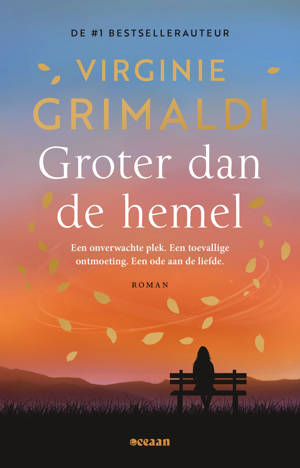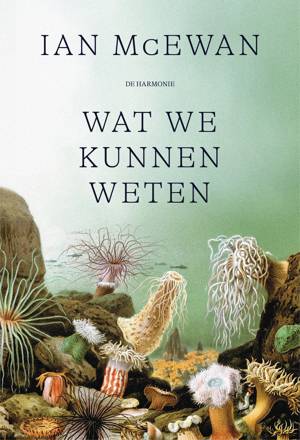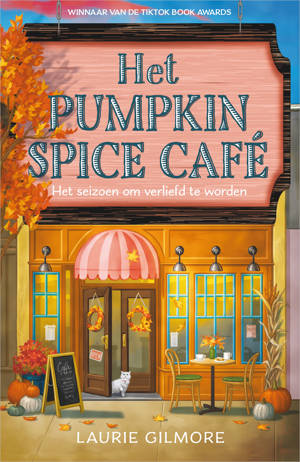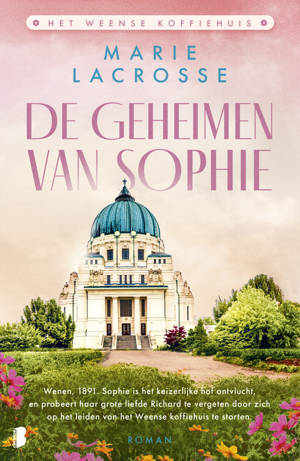
Bedankt voor het vertrouwen het afgelopen jaar! Om jou te bedanken bieden we GRATIS verzending (in België) aan op alles gedurende de hele maand januari.
- Afhalen na 1 uur in een winkel met voorraad
- In januari gratis thuislevering in België
- Ruim aanbod met 7 miljoen producten
Bedankt voor het vertrouwen het afgelopen jaar! Om jou te bedanken bieden we GRATIS verzending (in België) aan op alles gedurende de hele maand januari.
- Afhalen na 1 uur in een winkel met voorraad
- In januari gratis thuislevering in België
- Ruim aanbod met 7 miljoen producten
Zoeken
Onze literatuur & romans: Vertaalde literatuur
Wat je leest, maakt ons niet uit. Dat je leest des te meer. Dompel jezelf onder in een zee van literatuur en romans, waar elk blad een nieuw avontuur onthult. Verlies je in de diepgaande thema’s van onze literaire boeken, of laat je meeslepen door de nieuwste romans. Vind hieronder het boek waar je de rug helemaal krom van wil lezen, van literair tot populair.
Elk van onze romans kan je thuis laten leveren of afhalen in een Standaard Boekhandel bij jou in de buurt. Toch liever een e-book? Klik hier om naar alle e-books in deze categorie te gaan.
Vertaalde literatuur top 10
-
Het ultieme geheim
Dan Brown
- Paperback | Nederlands | Robert Langdon | nr. 6
-
Het laatste lied
Lucinda Riley
- Paperback | Nederlands
-
Waar de zon de sneeuw raakt
Mélissa Da Costa
- Paperback | Nederlands
-
Al het blauw van de hemel
Mélissa Da Costa
- Paperback | Nederlands
-
Vrijheid
Anne Jacobs
- Paperback | Nederlands | De scheepsdochter | nr. 3
-
De dagen die komen
Mélissa Da Costa
- Paperback | Nederlands
-
Het ultieme geheim
Dan Brown
- E-book | Nederlands | Robert Langdon
-
De Gingerbread Bakkerij
Laurie Gilmore
- Paperback | Nederlands | Dream Harbor | nr. 5
-
De tijd van loslaten
Kristin Hannah
- Paperback | Nederlands
-
Het Deense verlangen
Karen Swan
- Paperback | Nederlands
Populaire keuzes
Trending
Alleen bij Standaard Boekhandel
Nieuw
-
Vrijheid
Anne Jacobs
- Paperback | Nederlands | De scheepsdochter | nr. 3
-
Woman down
Colleen Hoover
- Paperback | Nederlands
-
Voor altijd bij mij
Kristin Harmel
- Paperback | Nederlands
-
Liefde uit onverwachte hoek
Katie Fforde
- Paperback | Nederlands
-
Verborgen in het verleden
Viveca Sten
- Paperback | Nederlands | Åremorden | nr. 3
-
Geschenk van de zee
Julia Kelly
- Paperback | Nederlands
Pre-order nu
-
Als dromen fluisteren
Mélissa Da Costa
- Paperback | Nederlands
-
Opaal
Eleanor Buchanan
- Paperback | Nederlands
-
De zussen van de bosbessenboerderij
Manuela Inusa
- Paperback | Nederlands | Kustdromen | nr. 6
-
Lieve Debbie
Freida McFadden
- Paperback | Nederlands
-
De Noorse dochter
Soraya Lane
- Paperback | Nederlands | De verloren dochters | nr. 7
-
Ondersteboven
Danielle Steel
- Paperback | Nederlands
Vertaalde literatuur
-
Het ultieme geheim
Dan Brown
- Paperback | Nederlands | Robert Langdon | nr. 6
- De nieuwe thriller van de wereldwijde bestsellerauteur Dan Brown. Zijn meest ingenieuze thriller tot nu toe – een razendsnel en uitdagend meesterwerk ... Lees meer
€ 29,99Levering 1 à 2 werkdagen Afhalen in de winkel na 1 u.€ 29,99Levering 1 à 2 werkdagen Afhalen in de winkel na 1 u. -
Het laatste lied
Lucinda Riley
- Paperback | Nederlands
- In Het laatste lied van bestsellerauteur Lucinda Riley wordt een muzikale droom verstoord door roem en geheimen. Een meeslepende roman over familie, l... Lees meer
€ 24,99Opnieuw verwacht vanaf 21/01/2026 Afhalen in de winkel na 1 u.€ 24,99Opnieuw verwacht vanaf 21/01/2026 Afhalen in de winkel na 1 u. -
Waar de zon de sneeuw raakt
Mélissa Da Costa
- Paperback | Nederlands
- Philippe is veertig, commercieel directeur, getrouwd en vader van twee kinderen. Ambre is twintig, heeft niets en niemand. Behalve hem.Wanneer ze, ove... Lees meer
€ 25,99Levering 1 à 2 werkdagen Afhalen in de winkel na 1 u.€ 25,99Levering 1 à 2 werkdagen Afhalen in de winkel na 1 u. -
Al het blauw van de hemel
Mélissa Da Costa
- Paperback | Nederlands
- Nadat bij Emile jong-alzheimer werd vastgesteld, besluit hij het ziekenhuis en het medeleven van zijn familie en vrienden te ontvluchten. Stiekem koop... Lees meer
€ 24,99Levering 1 à 2 werkdagen Afhalen in de winkel na 1 u.€ 24,99Levering 1 à 2 werkdagen Afhalen in de winkel na 1 u. -
Vrijheid
Anne Jacobs
- Paperback | Nederlands | De scheepsdochter | nr. 3
- Na de dood van haar man moet Johanna in Vrijheid , het derde deel van De scheepsdochter -serie van Anne Jacobs, vechten om haar plaats op de scheepswe... Lees meer
€ 22,99Levering 2 à 3 werkdagen Afhalen in de winkel na 1 u.€ 22,99Levering 2 à 3 werkdagen Afhalen in de winkel na 1 u. -
De dagen die komen
Mélissa Da Costa
- Paperback | Nederlands
- Amande had nooit gedacht dat pijn zo intens kon zijn. Ze trekt zich terug in een afgelegen huis in Auvergne om haar verdriet ten volle te beleven.De d... Lees meer
€ 22,99Levering 1 à 2 werkdagen Afhalen in de winkel na 1 u.€ 22,99Levering 1 à 2 werkdagen Afhalen in de winkel na 1 u. -
Het ultieme geheim
Dan Brown
- E-book | Nederlands | Robert Langdon
- 'Dan Brown is terug, en hoe. Dit is het hogere thrillerschrijven.' de Volkskrant. Zijn meest ingenieuze thriller tot nu toe: een razendsnel en uitdage... Lees meer
€ 20,99Onmiddellijk beschikbaar€ 20,99Onmiddellijk beschikbaar -
De Gingerbread Bakkerij
Laurie Gilmore
- Paperback | Nederlands | Dream Harbor | nr. 5
- Van Laurie Gilmore, de internationale bestsellerauteur van Het Pumpkin Spice Café, komt een nieuwe, heerlijke small town romance: De Gingerbread Bakke... Lees meer
€ 15,00Levering 1 à 2 werkdagen Afhalen in de winkel na 1 u.€ 15,00Levering 1 à 2 werkdagen Afhalen in de winkel na 1 u. -
De tijd van loslaten
Kristin Hannah
- Paperback | Nederlands
- De tijd van loslaten is het ultieme verhaal over opoffering en de verschillende vormen die echte liefde aan kan nemen Liam Campbell is radeloos als zi... Lees meer
€ 15,00Levering 1 à 2 werkdagen Afhalen in de winkel na 1 u.€ 15,00Levering 1 à 2 werkdagen Afhalen in de winkel na 1 u. -
Het Deense verlangen
Karen Swan
- Paperback | Nederlands
- In de winterse roman van Karen Swan onderzoekt Darcy een portret in Kopenhagen. Tijdens haar zoektocht groeit onverwachts de liefde tussen haar en Max... Lees meer
€ 22,99Levering 2 à 3 werkdagen Afhalen in de winkel na 1 u.€ 22,99Levering 2 à 3 werkdagen Afhalen in de winkel na 1 u. -
Waar de zon de sneeuw raakt
Mélissa Da Costa
- E-book | Nederlands
- Philippe is veertig, commercieel directeur, getrouwd en vader van twee kinderen. Ambre is twintig, heeft niets en niemand. Behalve hem.Wanneer ze, ove... Lees meer
€ 15,99Onmiddellijk beschikbaar€ 15,99Onmiddellijk beschikbaar -
Dream Harbour-pakket
Laurie Gilmore
- Geniet van de cosy small town romance in de eerste vier delen van de populaire Dream Harbor -serie van Laurie Gilmore. Het Pumpkin Spice Café : Wannee... Lees meer
€ 40,00Levering 2 à 3 werkdagen Afhalen in de winkel na 1 u.€ 40,00Levering 2 à 3 werkdagen Afhalen in de winkel na 1 u. -
De man van St. Petersburg
Ken Follett
- Paperback | Nederlands
- 'Griezelig aannemelijk. Een van Folletts beste.' Time Londen, begin 1914: zijn naam is Feliks. Hij is naar Londen gekomen om een moord te plegen die d... Lees meer
€ 15,00Levering 1 à 2 werkdagen Afhalen in de winkel na 1 u.€ 15,00Levering 1 à 2 werkdagen Afhalen in de winkel na 1 u. -
De jongen, de mol, de vos en het paard
Charlie Mackesy
- Hardcover | Nederlands
- 'De jongen, de mol, de vos en het paard', vertaald door Arthur Japin, is een prachtig verhaal van Charlie Mackesy over vriendschap, liefde en jezelf z... Lees meer
€ 23,99Levering 1 à 2 werkdagen Afhalen in de winkel na 1 u.€ 23,99Levering 1 à 2 werkdagen Afhalen in de winkel na 1 u. -
Cirkel der dagen
Ken Follett
- Hardcover | Nederlands
- Ken Follett neemt zijn lezers mee naar het ontstaan van het indrukwekkende Stonehenge Seft, een getalenteerde vuursteenmijnwerker, loopt door de Grote... Lees meer
€ 29,99Levering 2 à 3 werkdagen Afhalen in de winkel na 1 u.€ 29,99Levering 2 à 3 werkdagen Afhalen in de winkel na 1 u. -
Groter dan de hemel
Virginie Grimaldi
- Paperback | Nederlands
- Het nieuwe boek van Virginie Grimaldi, voor de lezers van Al het blauw van de hemel van Mélissa Da Costa en Ga als een rivier van Shelley Read Elsa en... Lees meer
€ 18,99Levering 2 à 3 werkdagen Afhalen in de winkel na 1 u.€ 18,99Levering 2 à 3 werkdagen Afhalen in de winkel na 1 u. -
De christmas tree winkel
Laurie Gilmore
- Paperback | Nederlands | Dream Harbor | nr. 3
- Omarm het cosy kerstseizoen met De Christmas Tree Winkel van bestsellerauteur Laurie Gilmore. Elk boek in de Dream Harbor -serie kan worden gelezen al... Lees meer
€ 15,00Levering 2 à 3 werkdagen Afhalen in de winkel na 1 u.€ 15,00Levering 2 à 3 werkdagen Afhalen in de winkel na 1 u. -
Het bal in Versailles
Danielle Steel
- Paperback | Nederlands
- Een avond om nooit te vergeten. Droom weg met de nieuwe roman van Danielle Steel, Het bal in Versailles. Het is de zomer van 1958. Het Paleis van Vers... Lees meer
€ 22,99Levering 2 à 3 werkdagen Afhalen in de winkel na 1 u.€ 22,99Levering 2 à 3 werkdagen Afhalen in de winkel na 1 u. -
Wat we kunnen weten
Ian McEwan
- Paperback | Nederlands
- Op 20 mei 2119 nam ik de nachtboot vanaf Port Marlborough, zodat ik aan het eind van de middag aankwam op de kleine kade bij Meantwrog-under-Sea. Tom ... Lees meer
€ 27,50Verwachte leverdatum onbekend Afhalen in de winkel na 1 u.€ 27,50Verwachte leverdatum onbekend Afhalen in de winkel na 1 u. -
Het Pumpkin Spice Café

Laurie Gilmore
- Paperback | Nederlands | Dream Harbor | nr. 1
- Winnaar TikTok Book Shop of the Year-award: Het Pumpkin Spice Café is een heerlijke cosy small town romance van TikTok-fenomeen Laurie Gilmore. Elk bo... Lees meer
€ 15,00Levering 1 à 2 werkdagen Afhalen in de winkel na 1 u.€ 15,00Levering 1 à 2 werkdagen Afhalen in de winkel na 1 u. -
Het ultieme geheim
Dan Brown
- Hardcover | Nederlands | Robert Langdon | nr. 6
- 'Dan Brown is terug, en hoe. Dit is het hogere thrillerschrijven.' de Volkskrant. Zijn meest ingenieuze thriller tot nu toe: een razendsnel en uitdage... Lees meer
€ 39,99Levering 1 à 2 werkdagen Afhalen in de winkel na 1 u.€ 39,99Levering 1 à 2 werkdagen Afhalen in de winkel na 1 u. -
Regretting you
Colleen Hoover
- Paperback | Nederlands
- De emoties lopen hoog op... 'Regretting you' is de Nederlandse editie van Colleen Hoovers aangrijpende moeder-dochterroman Lees meer
€ 14,99Levering 2 à 3 werkdagen Afhalen in de winkel na 1 u.€ 14,99Levering 2 à 3 werkdagen Afhalen in de winkel na 1 u. -
De verloren ringen
Nora Roberts
- Paperback | Nederlands | Verloren bruid | nr. 3
- Het laatste deel van de betoverende Verloren bruid -serie Lang geleden bouwde Arthur Poole een groot huis in Maine dat uitkeek over de onstuimige ocea... Lees meer
€ 21,99Levering 2 à 3 werkdagen Afhalen in de winkel na 1 u.€ 21,99Levering 2 à 3 werkdagen Afhalen in de winkel na 1 u. -
De geheimen van Sophie
Marie Lacrosse
- Paperback | Nederlands | Het Weense koffiehuis | nr. 3
- Van de boeken van Marie Lacrosse zijn al ruim 70.000 exemplaren verkocht in Nederland en Vlaanderen Na de dood van haar oom runt Sophie met groot succ... Lees meer
€ 22,99Levering 1 à 2 werkdagen Afhalen in de winkel na 1 u.€ 22,99Levering 1 à 2 werkdagen Afhalen in de winkel na 1 u.









